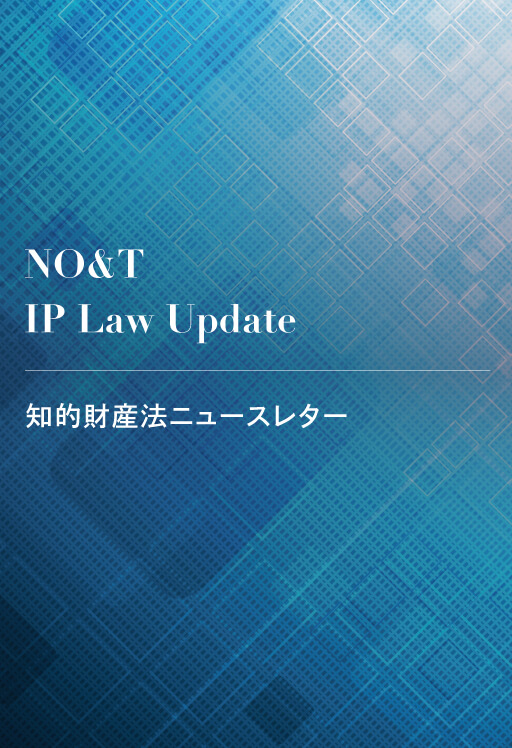
NO&T Asia Legal Review
It is an undeniable fact that digital platforms have worked their way into people’s lives in an attempt to facilitate day-to-day activities in all aspects, for example, social interaction, financial transactions, and online marketplaces. Along with the rise of such digital platforms, regulators have faced challenges to protect consumers and ensure users’ safety.
In Thailand, the government has enacted the Electronic Transactions Act since 2001 and the Royal Decree re: The Operation of Digital Platform Service Businesses that are subject to Prior Notification in 2022 in order to regulate the operation of digital platform service providers. To further regulate this sector, this year, in 2025, the Thai government has introduced a new draft legislation for digital platforms i.e. the Draft Digital Platform Economy Act (the “Draft Act”). The purposes of this Draft Act are to monitor the provision of digital platform service, to protect public interest and service users and to encourage fair competition in platform system. The Draft Act entails ex-ante approach by prescribing certain duties for the platform service providers. Also, the regulatory body, i.e., the Digital Platform Economy Committee (the “Committee”), is expected to be established to, among others, set up a policy and framework for digital platform service. This article sets out a summary of the key provisions of the Draft Act.
The service providers of digital platforms which will be regulated under the Draft Act are classified as follows:
Digital intermediary service means the provision of services over a computer network, the internet or telecommunication networks, acting as intermediaries between senders and receivers of information which are mere conduit service (i.e. data transmission services), caching (i.e. temporary data system services), hosting (i.e. data storage services) and other services which may be announced under the subordinate regulation. The digital intermediary service providers have several obligations under the Draft Act, for example, notifying the users of rights and duties under relevant laws related to sale and purchase, service or any transaction through digital platform service, publicizing terms and conditions of service to users. Nevertheless, the service providers are not obligated to examine the data which they receive, transmit or store in order to detect any illegal activities.
Most importantly, the providers of digital intermediary service shall not be held accountable for any illegal actions arising from the data transmitted or stored through their services, provided that, for instance, such digital intermediary service do not initiate transmission of any illegal data, comply with general standard of caching service, or do not know or could not know, even with caution, that such stored data is illegal.
Under the Draft Act, digital platform service is the provision of [hosting (data storage services)] that facilitates the matching of different types of users to enable electronic transactions or interactions, whether service fees are charged or not. Digital platform services in Thailand are, for example, e-commerce marketplace, flight and hotel booking applications, ride-hailing applications, search engines, food delivery platforms.
The obligations for the platform service operators are, among others, to inform users of rights and duties under relevant laws regarding the sale and purchase of goods or services, to disclose to users which content is advertising and distinguish advertising content from non-advertising content, to provide channel for complaints or to report information concerning illegal activities.
Additionally, the Draft Act further prescribes characteristics of Very Large Online Platform Services (“VLOPs”) and these VLOPs are subject to extra obligations. To fall under VLOPs, the operator must have either one of the following characteristics:
For VLOPs located outside Thailand, if they provide service to users in Thailand and meet the above characteristics, they shall also be subject to notification of duties under the Draft Act.
The main duties of VLOPs are, for instance,
The gatekeeper refers to the providers of core platform services, e.g. online search engines, online social networking services, online intermediation services, video-sharing services, web browsers, cloud computing services, for digital platform who have the authority to control access to services provided by others e.g. to grant or deny users entry to other platforms. Operators who will be considered as gatekeepers must have the characteristics and fall under the criteria as in the table below.
| Characteristics | Criteria |
|---|---|
| 1. posing significant economic and social impact | Annual income: having annual income over THB 7 billion from core platform service in Thailand |
| 2. being an important gateway for business users to reach end users | Users: having over 15 million end users per months and at least 10,000 business users per year in Thailand |
| 3. having power to limit other operators from competing therewith and being able to maintain its durable position | Market power: having the number of end users and business users in Thailand over the past 3 years equal to the number of users specified above |
Among others, the gatekeepers are obliged to:
The main governing authority which will oversee the application of this Draft Act in terms of protection of users is the Committee which is established under the Draft Act and it will operate under ETDA. Additionally, the Draft Act contains several provisions concerning trade competition and grants the Trade Competition Commission of Thailand (“TCCT”) certain authority thereunder e.g. consideration of business size of the gatekeeper shall be based on connecting policy and management control under the criteria of TCCT, ETDA shall provide information of VLOPs providing core platform service to TCCT, TCCT must cooperate with ETDA to achieve the purposes of this Draft Act. Furthermore, the Committee will consist of 2 directors who are designated by the TCCT. In terms of fair competition, TCCT will mainly oversee this matter, particularly for operators designated as gatekeepers.
The Draft Act has just undergone public hearing from 15 January 2025 to 15 February 2025. It is expected that the enactment of the Draft Act will build trust in users to use digital platforms and will increase more online transactions, even though the compliance burden for operators and digital service providers would increase. Furthermore, it aims to reduce illegal activities and contents on digital platforms. The operators of digital platforms in Thailand should start preparing to meet the compliance obligations under the Draft Act.
This newsletter is given as general information for reference purposes only and therefore does not constitute our firm’s legal advice. Any opinion stated in this newsletter is a personal view of the author(s) and not our firm’s official view. For any specific matter or legal issue, please do not rely on this newsletter but make sure to consult a legal adviser. We would be delighted to answer your questions, if any.


Hoai Truong


(August 2025)
Keiji Tonomura, Yoshiteru Matsuzaki (Co-author)


(July 2025)
Ryo Okubo, Yu Takahashi, Uchu Takehara, Naoto Obara (Co-author)


(June 2025)
Keiji Tonomura, Yukiko Konno, Minh Thi Cao Koike, Yoshiteru Matsuzaki (Co-author)


(August 2025)
Keiji Tonomura, Yoshiteru Matsuzaki (Co-author)


(April 2025)
Keiji Tonomura, Akira Komatsu (Co-author)


Poonyisa Sornchangwat, Kwanchanok Jantakram (Co-author)


Kenji Tosaki, Takahiro Hatori, Nozomi Kato (Co-author)


Supasit Boonsanong, Thananya Pholchaniko, Phareeya Yongpanich (Co-author)


Patricia O. Ko


Claire Chong, Nozomi Kato (Co-author)


Yuan Yao Lee


Supasit Boonsanong, Thananya Pholchaniko, Phareeya Yongpanich (Co-author)


Patricia O. Ko


Claire Chong, Nozomi Kato (Co-author)


Yuan Yao Lee


Supasit Boonsanong, Thananya Pholchaniko, Phareeya Yongpanich (Co-author)


Nopparak Yangiam, Parot Promkam (Co-author)


Shunsuke Minowa, Poonyisa Sornchangwat (Co-author)


Shohei Sasaki, Shunsuke Minowa, Poonyisa Sornchangwat, Kwanchanok Jantakram (Co-author)